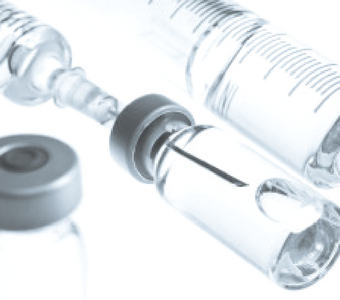With Gilead’s (NASDAQ:GILD) reported 100% Hepatitis C virologic response rate over the weekend, rivals Achillion (NASDAQ:ACHN) and Vertex (NASDAQ:VRTX) traded down 15% and 5% respectively at Monday’s open. Vertex shareholders rightfully have cause for alarm, as Incivek’s blockbuster status may shortly be replaced by more effective oral treatments. But Achillion’s pipeline regimen isn’t so far behind Gilead’s as to make it obsolete, despite the market’s reaction. While both Gilead and Abbot (NYSE:ABT) have a leg up in the development process, Achillion’s protease inhibitors suggest a strong safety and efficacy profile without the risk associated with the now-infamous “nucs” that have plagued BMS (NYSE:BMY) and Idenix (NASDAQ:IDIX).
Achillion also announced on Monday that a drug-drug interaction study evaluating the combination of sovaprevir (ACH-1625, lead candidate) and ACH-3102 returned no problems, and the company plans to push forward with a Phase 2 trial evaluating the protease inhibitor and the NS5A inhibitor together. The study will be highly indicative of the combination’s effectiveness, especially as investors focus on Gilead’s 100% cure rate and Abbot’s 97% cure rate. The company expects those results in the first half of 2013. Achillion also reported that its Phase 1b clinical trial of ACH-2684, a second-generation protease inhibitor, demonstrated similar antiviral activity in patients with cirrhosis as it did in non-cirrhosis patients. Add to Achillion’s pipeline the NS5A Inhibitor ACH-2928, and the company has an array of options in its regimen-producing cabinet. With a comparatively low market cap of $560M, it is a prime licensing or acquisition candidate in an increasingly interesting space. Gilead coughed up an arguably exorbitant dollar amount in its Pharmasset purchase last year, as did Bristol-Myers for Inhibitex, and while we certainly don’t want to be overly suggestive, there is clearly broad attention being paid to the field.
Although earlier in the development process, Achillion remains a contender for a slice of the HCV pie. The company registered a $200M shelf offering last Thursday, but doesn’t appear to need cash in the interim after a financing in late August. ACHN’s Monday sell-off already began retracing by the early afternoon, and we expect shares to continue regaining strength. ACHN holds long-term interest, particularly as the HCV market opportunity becomes more delineated by other market entrants.
See our earlier stories on Achillion:



